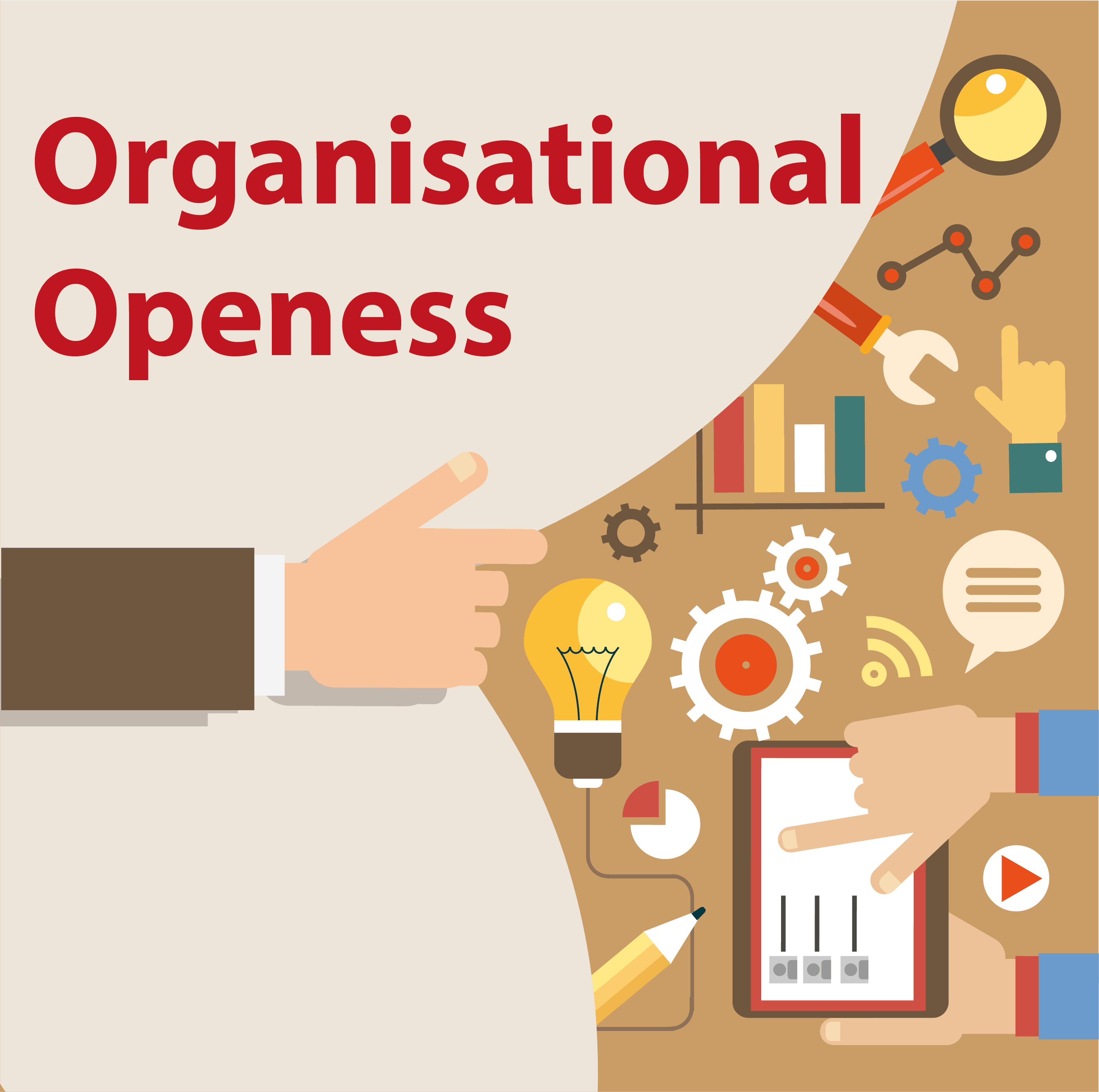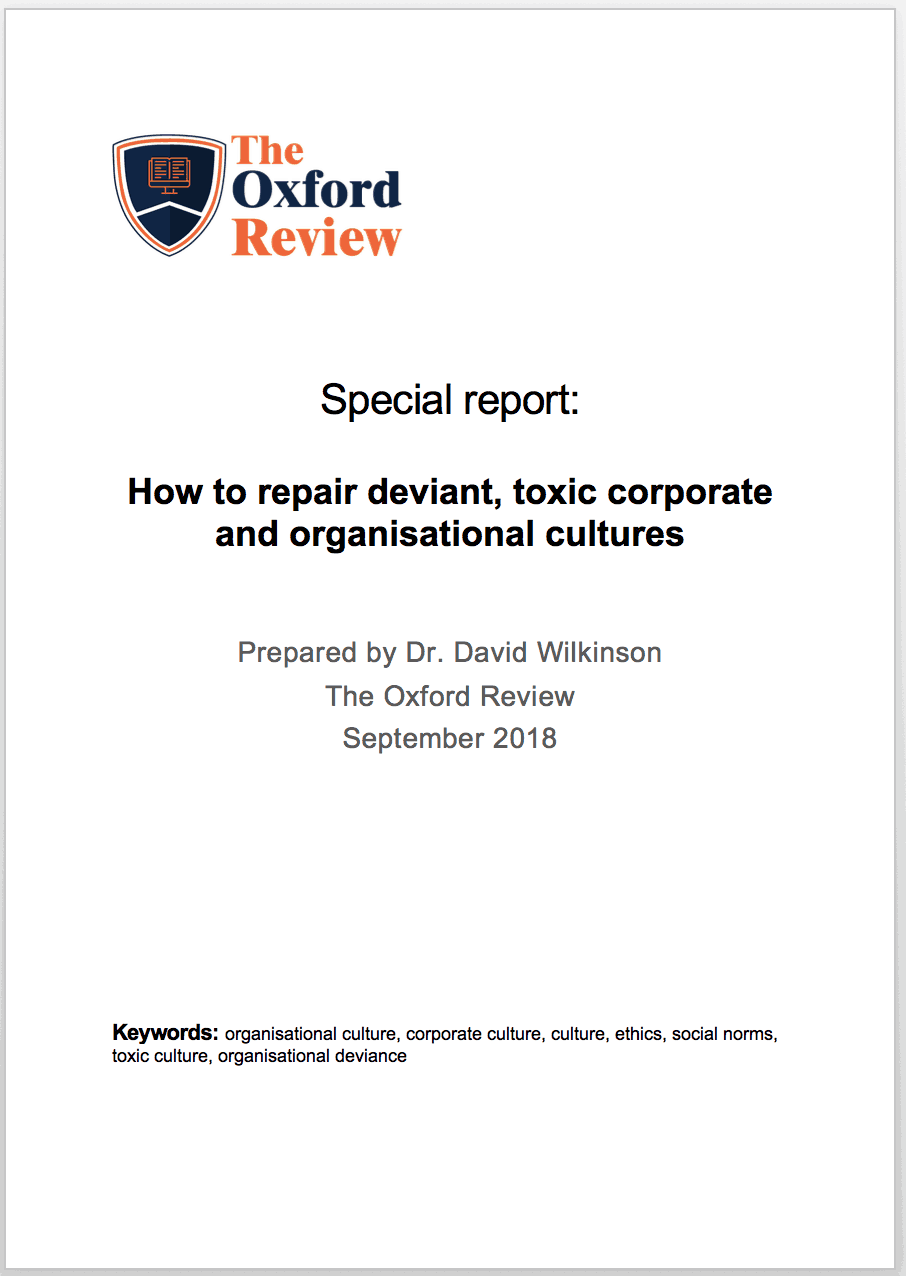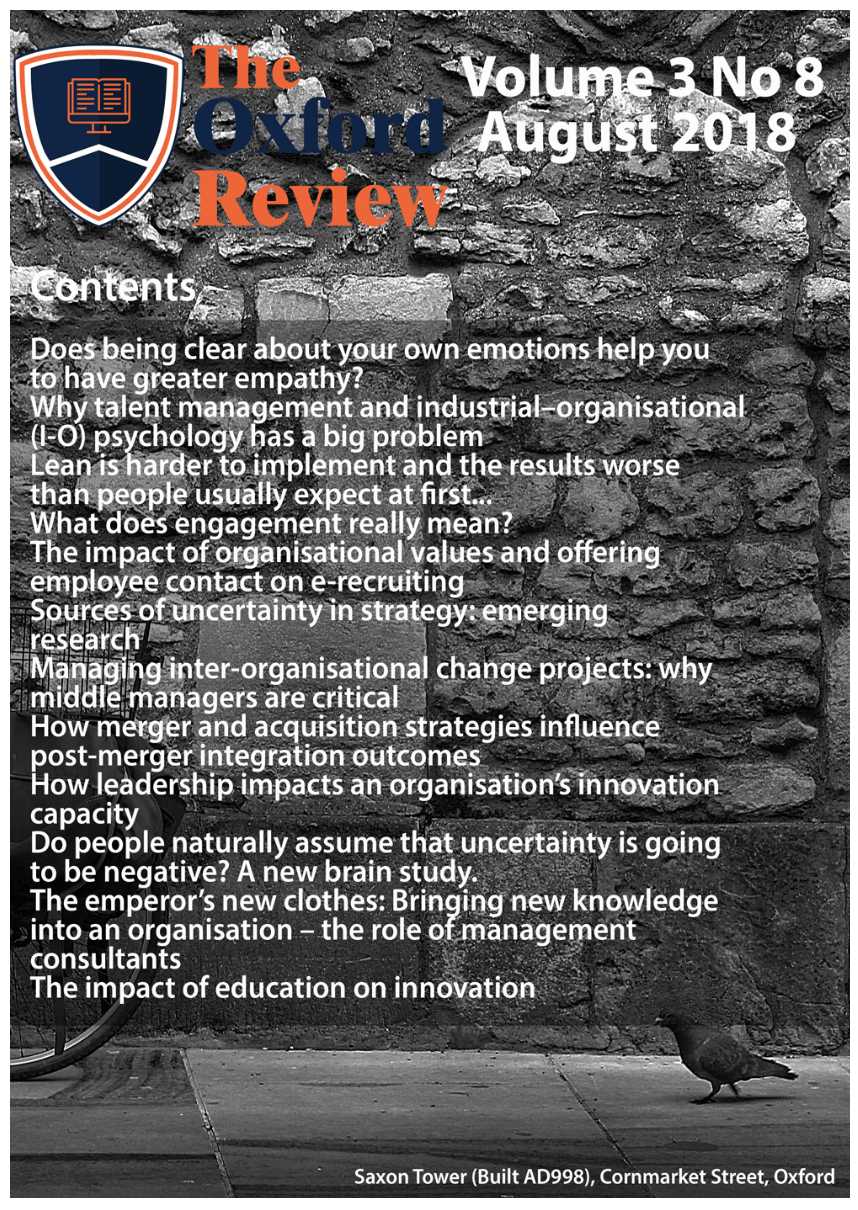- in Blog , Research Briefings by David Wilkinson
Positive Leadership and the 4 dilemmas of strategic timing

This week we sent members two brand new research briefings The rise of Positive Organisational Leadership Keywords: positive organisational leadership, leadership, positive organisational scholarship, leadership development, positive deviance, organisational development Positive organisational scholarship is part of the recent interest in positive psychology and positive organisational development and refers to organisational approaches to developing a […]
Read more- in Blog , Management by David Wilkinson
- |
- 3 comments
How emotional intelligence makes a difference during performance reviews

Does the level of emotional intelligence of the manager or the subordinate make any difference to the outcome of performance reviews? Emotional intelligence The study Findings Reference Emotional intelligence Previous studies have found that higher levels of emotional intelligence correlate closely with higher levels of job satisfaction and a general sense of control over […]
Read more- in Blog , Research Briefings by David Wilkinson
- |
- 1 comments
Flexibility, strategy & knowledge management – members only research briefings

This week our members received the following three research briefings… Psychological flexibility The four dilemmas of strategic timing Knowledge management success in organisations The critical importance of psychological flexibility and how it predicts mental health outcomes and resilience Keywords: Psychological inflexibility, Psychological flexibility, cognitive flexibility, cognitive inflexibility, coaching Psychological flexibility refers […]
Read more- in Blog , Organisational Development , Research by David Wilkinson
- |
- 1 comments
Organisational openness and how it impacts employee performance

Organisational openness is an across organisation philosophy which emphasises transparency in all areas and free unrestricted access to knowledge and information. It also incorporates and promotes positive collaboration and cooperative management and decision-making, with an emphasis on learning as opposed to being right. Open organisations Learning and agility Culture Creativity, innovation and flexibility The study […]
Read moreHow to repair deviant, toxic corporate and organisational cultures

The Oxford Review has just published it’s latest Special Report – How to repair deviant, toxic corporate and organisational cultures. Special reports are extended research briefings. In this report: This report is based on a detailed review of previous studies in the field and draws together the learning about how to deal with cultures once they […]
Read more- in Blog , Research , Work psychology by David Wilkinson
- |
- 1 comments
Perfectionism: The different types of perfectionist and how they cope

Researchers have been studying the impact of perfectionism on a range of outcomes. Previous research has found that individuals with higher levels of perfectionism, who experienced stress are significantly more likely to experience emotional distress. This study wanted to see how people cope with perfectionism and stress. Perfectionism Perfectionistic striving Perfectionistic concerns Healthy perfectionists The […]
Read more- in Blog by David Wilkinson
- |
- 2 comments
Practice intelligence and the problem with Business School learning

Why management and leadership development should be focussing on practice intelligence. Fourteen years ago this year Henry Mintzberg published his book ‘Managers not MBAs: A hard look at the soft practice of managing and management development‘, in which Mintzberg challenged the prevailing view that the recipient of the MBA was by default not only […]
Read more- in Blog , Leadership , Research by David Wilkinson
How we collude to not resolve the paradoxes leaders and managers create

How managers and leaders create paradoxes at work Messages and orders from leaders and managers create a world of meaning in organisations. Often however the messages managers and leaders unintentionally send out frequently create a paradox i.e. inconsistencies, uncertainties and ambiguity that defy or counter the prevailing logic within the organisation. These in effect, create […]
Read more- in Blog by David Wilkinson
- |
- 1 comments
Why I-O psychologists and management consultants need to up their game…and more in…

In this Month’s Oxford Review: Does being clear about your own emotions help you to have greater empathy? Why talent management and industrial–organisational (I-O) psychology has a big problem Lean is harder to implement and the results worse than people usually expect at first What does engagement really mean? The impact of organisational values and […]
Read more- in Blog , Oxford Review by David Wilkinson
- |
- 1 comments
How to use The Oxford Review to develop your staff

Develop your staff In my last post I explored the most frequent use our members make of our research briefings which is for CPD purposes.In this article I want to look at how to use The Oxford Review to develop your staff, leaders and managers. The second most frequent use of our research briefings by […]
Read more